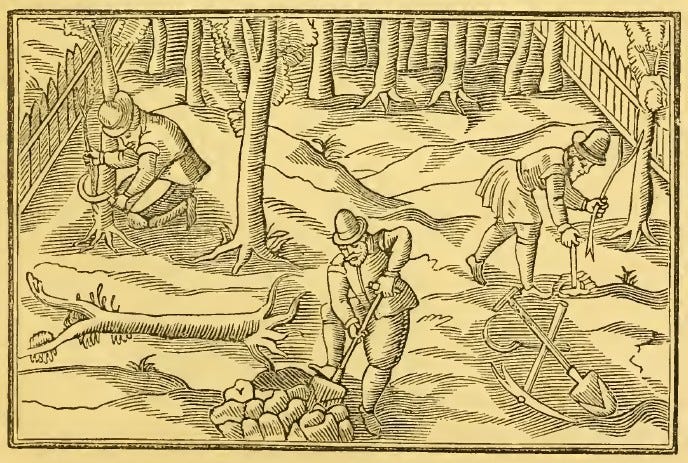
Thomas Tusser (c. 1524–1580) was a popular church singer, a farmer, a student at Eton and Cambridge — and a poet: a much-read Elizabethan. He was, in fact, as close to a bestselling poet as his age knew, with his 1557 A Hundred Good Pointes of Husbandrie (expanded in 1573 to Five Hundred Pointes of Good Husbandrie) printed in at least thirteen editions before 1600.
As it happens, “poet” may be too strong a word for the genial, perpetually poor man. The Pointes of Good Husbandrie is metered and rhymed, with some interesting eccentricities, but Tusser’s collection of didactic poetry sold so well because of the advice it conveyed. The book is probably best characterized as a guide to home economics joined to a self-help book and a farmer’s guide: an archaically spelled merging of Mrs. Beeton’s Book of Household Management with The 7 Habits of Highly Effective People and Cato’s ancient Roman De agri cultura…
Keep reading with a 7-day free trial
Subscribe to Poems Ancient and Modern to keep reading this post and get 7 days of free access to the full post archives.



